A nurse who thought she had acid reflux after eating has revealed how she was later diagnosed with aggressive cancer and had to have her entire stomach removed.
Chloe Stirling initially thought it was simply the result of eating spicy, greasy foods like tomato pasta or takeaway food, and took antacids (over-the-counter medications that help treat heartburn).
But the medicine only temporarily relieved the symptoms and 16 months later she was still in severe pain and had difficulty eating.
The 29-year-old, from St Helens, Merseyside, was eventually diagnosed with adenocarcinoma (a cancer) in her stomach.
She underwent four rounds of chemotherapy this summer, and earlier this month, on August 5, surgeons removed her entire stomach and several lymph nodes in a six-hour surgery.
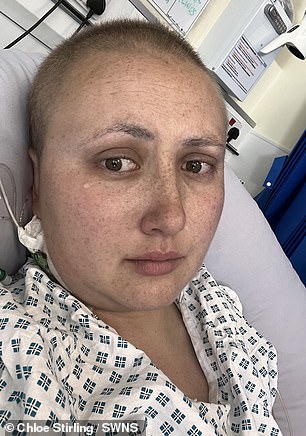
Nurse Chloe Stirling, 29, was diagnosed with an aggressive cancer when she suffered acid reflux after eating and had to have her entire stomach removed.
Two weeks later, Chloe was told the surgery had worked and she was cancer-free.
Chloe, a nurse practitioner, said: ‘At first I only noticed acid reflux after eating spicy or unhealthy foods, but it became more frequent.
‘I went in for an endoscopy and they found what they thought was an ulcer. They gave me a new medication, but I still had heartburn.
‘Then they called me to tell me I had an aggressive cancer: they gave me a 50 percent chance of survival.
‘I thought I was going to die. I cried every day for about two months because of all the ‘what ifs’.
She added: “The moment I woke up from surgery, I knew I was cancer-free and it was a huge relief.”
Chloe’s heartburn started in July 2022, but by November 2023 she also had pain and vomiting.

Chloe’s heartburn began in July 2022, but by November 2023 her symptoms had progressed to stomach pain and vomiting.
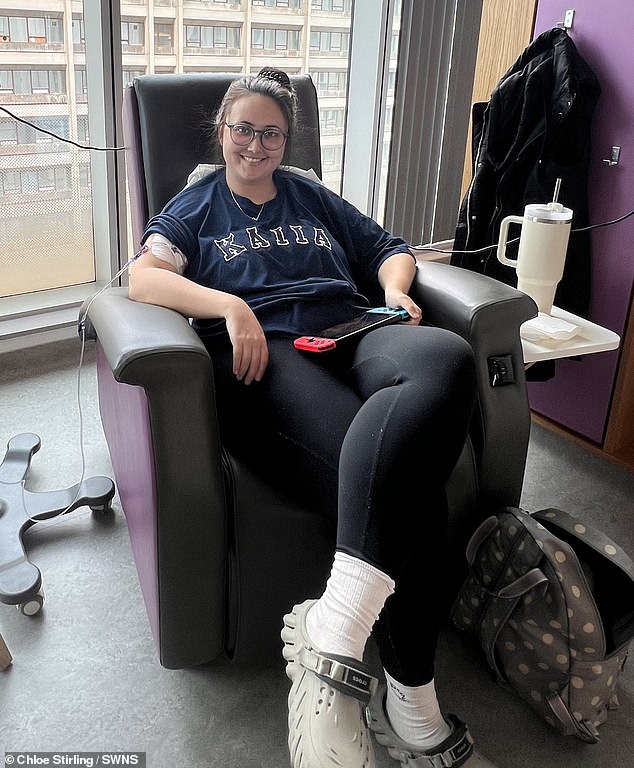
Chloe went to her GP and told him she was having trouble eating. She had an endoscopy but all they found was a small ulcer and a common bacterial infection.
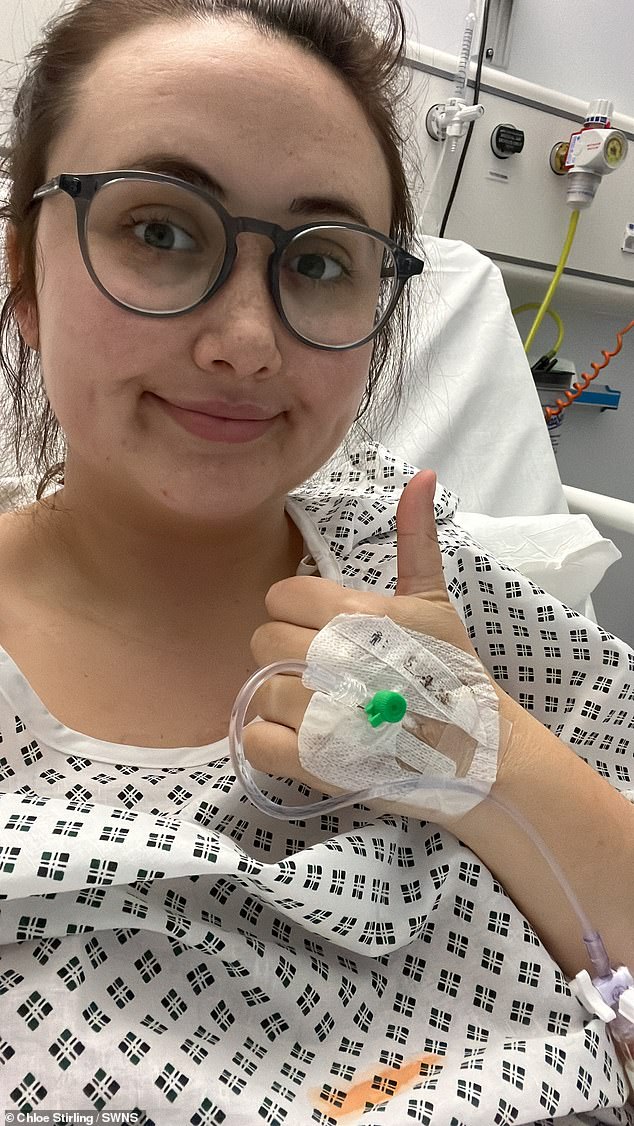
When Chloe’s heartburn continued, she had a biopsy of the ulcer and was diagnosed with poorly differentiated adenocarcinoma with signet ring cells on March 21. Chloe is pictured in hospital.
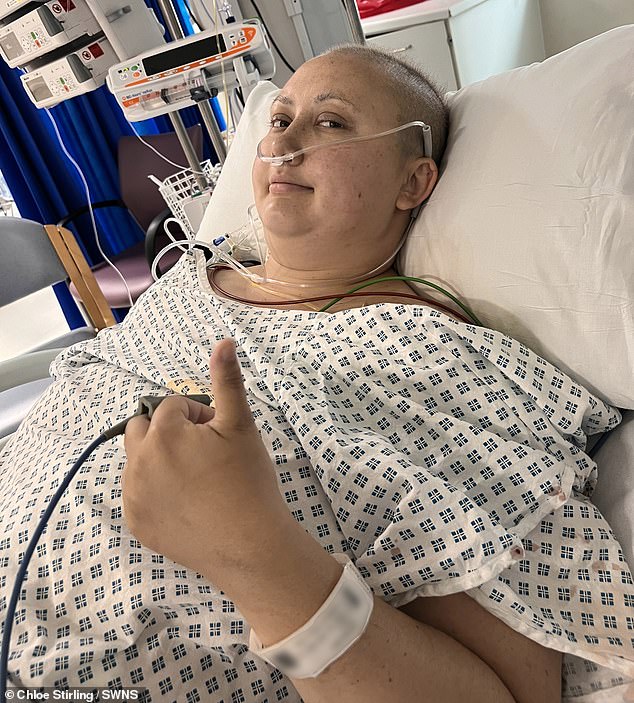
“I was given a 50 per cent chance of survival, I thought I was going to die and I cried every day for about two months because of all the ‘what ifs’,” Chloe (pictured in hospital) recalled.
She said: ‘Every time I ate or drank, even just water, I had a strange pain in my breastbone and back. I also had pain on the right side of my upper stomach.
At the time, he had been taking Ozempic injections to lose weight ahead of his wedding to fiancée Aimee, 30, in June 2025.
She stopped and the pains disappeared, but she continued to be suspicious.
A few weeks later she went to her GP and told him she was having trouble eating and feared she had cancer.
She was sent for an initial endoscopy but all they found was a small ulcer and a common bacterial infection, H. pylori, which is known to cause ulcers.
But H. pylori can also cause more serious diseases, including cancer.
When Chloe’s heartburn persisted, she had a biopsy of the ulcer and was diagnosed with poorly differentiated adenocarcinoma with signet ring cells on March 21.
It was between stages two and three, so it hadn’t spread.
Chloe said: ‘I thought I was going to die.’
His stomach was removed and his esophagus was connected directly to the small intestine.
He can still eat and digest food despite not having a stomach, but he has been started on liquids and soft foods and is receiving vitamin injections and iron infusions.
She wants to warn others to watch for symptoms, to persist when they know something is wrong and not to assume they are safe because of their young age.
Chloe said: ‘If your reflux is persistent, go get it checked out. If you know something is wrong, stand up for yourself.
‘Don’t let anyone tell you that you are too young to have cancer, no one is too young.
‘Cancer doesn’t discriminate and you never think it’s going to happen to you, until it happens.’
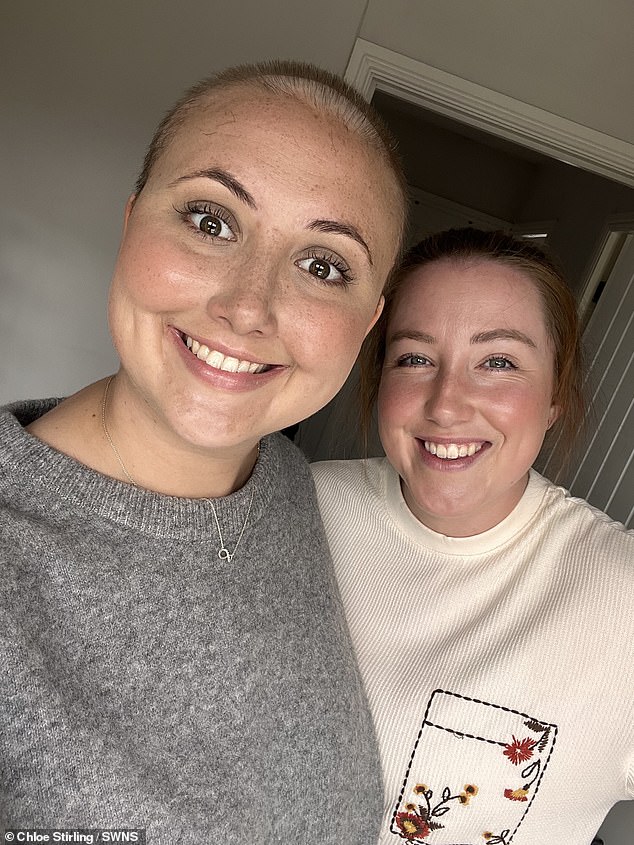
Her stomach was removed and her oesophagus was connected directly to the small intestine. She is still able to eat and digest food despite not having a stomach. Chloe is pictured with her fiancée Aimee, 30.
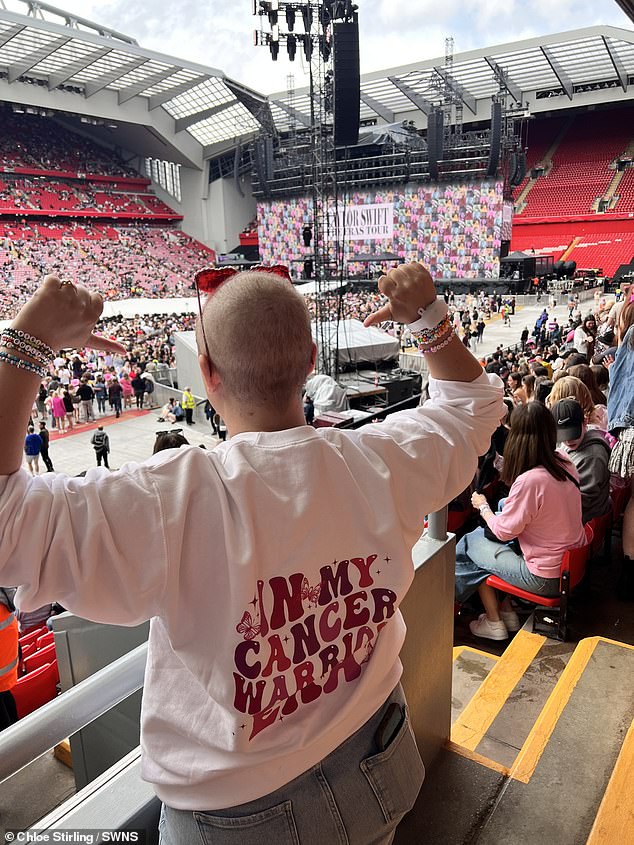
Chloe wants to warn others to watch for symptoms, to persist when they know something is wrong and not to assume they are safe because of their young age.

